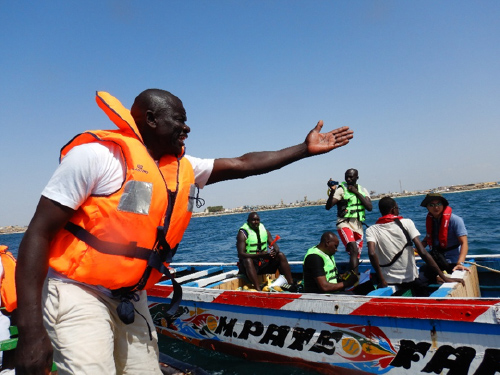
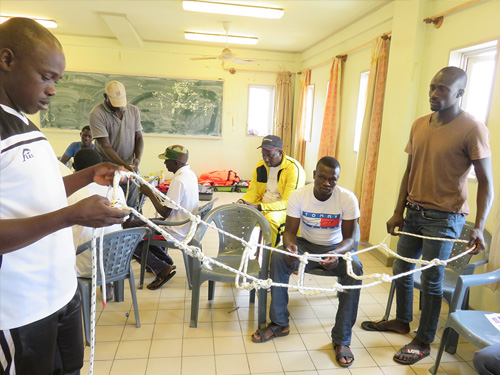
Senegal is a major fishing country in which 17% of the population is involved in the fisheries industry. However, the majority of these are tiny scale fishers operating wooden boats, and they face various problems. Especially, the low level of fishing management skill and the frequent occurrence of marine accidents are considered to be problems. Although there are many fishers who fishers who aim to achieve sustainable sue and are involved in resource management, illegal fishing operation that doesn’t follow the rules (IUU fishing*) also has deep roots, and the government has not taken sufficient countermeasures. Also, due to problems with fishing boat structures and engines, and safety devices, etc., in 2017 the number of fatalities due to marine accidents reading 140 persons. * Illegal, Unreported & Unregulated fishing
IUU and marine accidents have become a common worldwide problem, and in recent years have been seen as important areas in Japan’s aid policy. This survey investigates the status and issues of IUU fishing and marine accidents in Senegal, which is a central country in western Africa. In addition, concerning the concrete technical issues, demonstrations were conducted through a pilot program, and recommendations were on the direction of aid from a practical perspective.
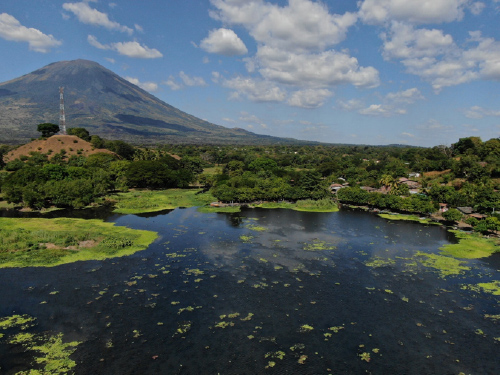
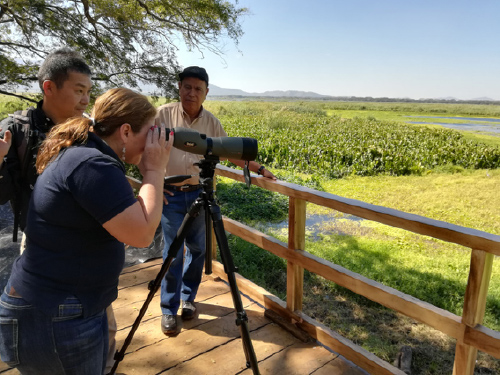
El Salvador is located in the heart of Central America, and it occupies a key position in transportation and distribution. However, its development was delayed by the influence of a long civil war. Development was especially delayed in the eastern region, which is the site of the project. The income disparity in the eastern region stands out, and awareness concerning the preservation of the ecosystem is not high. There are 7 registered Ramsar Convention sites in El Salvador. This project aimed at improving the wetland management ability of El Salvador’s Ministry of Environment and Natural Resources.
In this project, a national wetland committee and 7 local wetland committees were established, and the wetland management plan was decided. Then, based on the wetland management plan, 4 pilot projects were conducted.
1. Wetland ecosystem and wildlife habitat preservation
2. Creation of wetland value through environmental education/communication
3. Utilization of ecosystems for disaster prevention/fire prevention, through the optimization of use of agricultural lands
4. Optimization of the sugar cane cultivation method aiming to achieve wise use
Going forward, we will use the results of this activity as a model to be disseminated to other wetlands. Through this activity we will improve the wetland management ability of the Ministry of Environment and Natural Resources
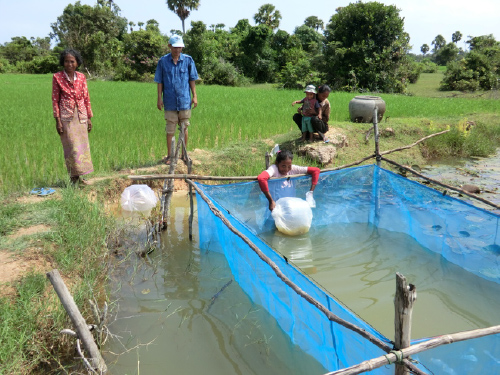
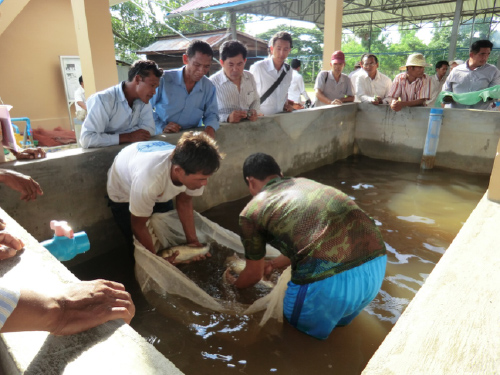
Cambodian citizens consume 52.5kgs of fish annual, placing them 4th in the world. There was a strong interest in using paddy fields, canals and ponds to conduct small scale aquaculture. However, farmers’ practice of aquaculture was hindered by their lack of knowhow and fish seeds for cultivation. This project was aquaculture technology conducted with a low monetary investment by utilizing existing rice fields and ponds and by using secondary agricultural products as feed. In addition, fish seed production technology was introduced using a simple incubator facility, and emphasis was placed on cultivating fish seed production farmers. The project aimed to disseminate aquaculture techniques on a farmer to farmer basis by using the approach of training sessions held between farmers that were suited to the conditions of each village. During the 2 periods of Phase 1 (February 2005 –February 2010), and Phase 2 (March 2011- March 2015), it was possible to cultivate over 9000 households, and 3000 households, respectively. The project not only achieved the obtainment of food, improvement of nutrition, and improvement of household finances in Cambodian villages, but also demonstrated that technology transfer between farming households was one effective method of promoting village development.